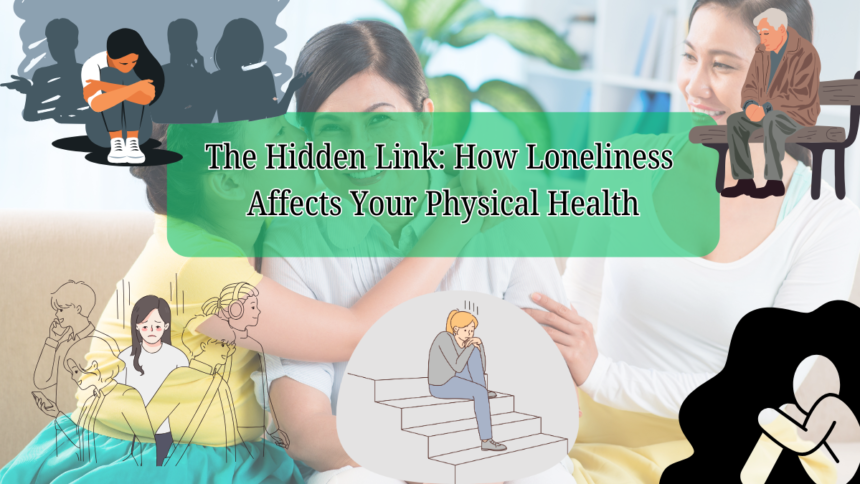Loneliness Affects
We’ve all felt lonely at some point—maybe after moving to a new city, during a tough breakup, or even in a crowded room where no one truly gets us. But what if loneliness is more than just an emotional burden? What if it’s silently harming your physical health?
Research shows that chronic loneliness can be as damaging as smoking 15 cigarettes a day, increasing the risk of heart disease, weakened immunity, and even premature death. In this article, we’ll explore the surprising ways loneliness impacts your body, why it happens, and—most importantly—what you can do about it.
How Loneliness Damages Your Body
Loneliness isn’t just a feeling—it triggers a cascade of biological responses that can wreak havoc on your health. Here’s how:
1. Loneliness Weakens Your Immune System
When you’re lonely, your body produces more stress hormones like cortisol. Over time, high cortisol levels suppress your immune system, making you more vulnerable to infections, slow wound healing, and even chronic inflammation linked to diseases like diabetes and arthritis.
Tip: Boost your immune health by staying socially active—even small interactions, like chatting with a neighbor, can help.
2. It Increases Heart Disease Risk
Studies have found that lonely individuals have a 29% higher risk of heart disease and a 32% increased risk of stroke. Why? Loneliness keeps your body in a constant state of stress, raising blood pressure and contributing to arterial damage.
Tip: Regular exercise and social activities (like joining a walking group) can protect both your heart and your mental well-being.
3. Loneliness Can Accelerate Cognitive Decline
Social isolation has been linked to a higher risk of dementia and Alzheimer’s. Without regular mental stimulation from conversations and relationships, your brain may deteriorate faster.
Tip: Engage in group activities like book clubs or puzzles to keep your mind sharp.
Video Credits
4. Poor Sleep Quality
Loneliness often leads to restless nights. Feeling unsafe or unsupported can make it harder to fall asleep and stay asleep, which in turn weakens your overall health.
Tip: Establish a calming bedtime routine and consider a pet for companionship—studies show they improve sleep for many people.
Why Does Loneliness Hurt So Much?
From an evolutionary standpoint, humans are wired for connection. Our ancestors relied on tribes for survival, so being isolated triggered a biological alarm—“You’re in danger!”
Today, even though we’re not facing physical threats, loneliness still signals distress to our bodies, keeping us in fight-or-flight mode. This chronic stress leads to inflammation, weakened immunity, and other health risks.
How to Combat Loneliness & Improve Your Health
The good news? Loneliness is reversible. Here are some science-backed ways to rebuild connection and protect your well-being:
1. Prioritize Quality Over Quantity
You don’t need hundreds of friends—just a few meaningful relationships. Focus on deepening connections with people who make you feel valued.
2. Volunteer or Join a Group
Community involvement (like volunteering or hobby groups) creates purpose and naturally fosters friendships.
3. Adopt a Pet
Pets reduce stress, lower blood pressure, and provide unconditional companionship.
4. Limit Social Media Comparisons
Scrolling through curated highlight reels can worsen loneliness. Try replacing screen time with real-life interactions.
5. Seek Professional Help if Needed
Therapy or support groups can help if loneliness feels overwhelming.
Final Thoughts: You’re Not Alone
Loneliness is more than a fleeting emotion—it’s a serious health risk. But by taking small steps to reconnect, you can heal both your mind and body.
Have you experienced the physical effects of loneliness? What strategies helped you cope? Share your story in the comments—we’d love to hear from you!
And if you found this article helpful, consider sharing it with someone who might need it. Together, we can build a healthier, more connected world.


